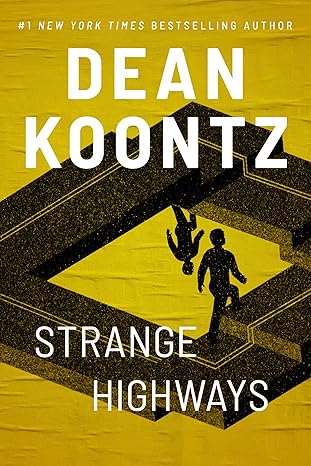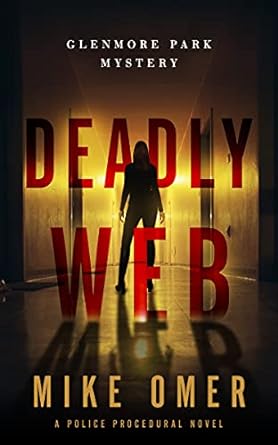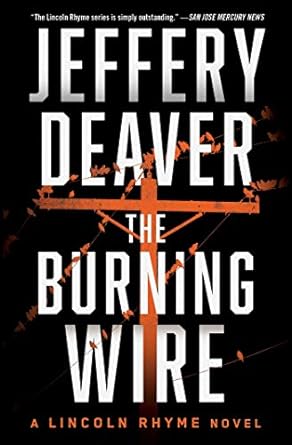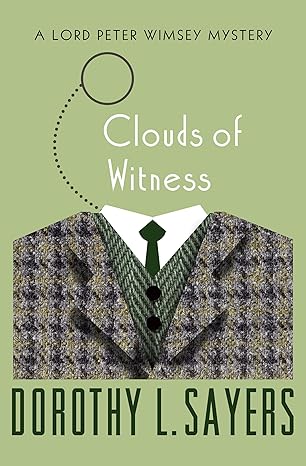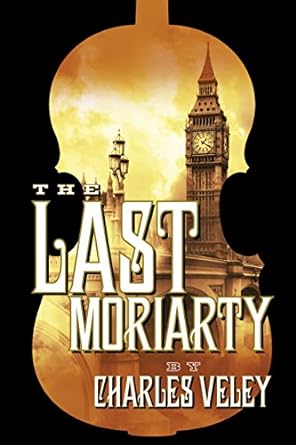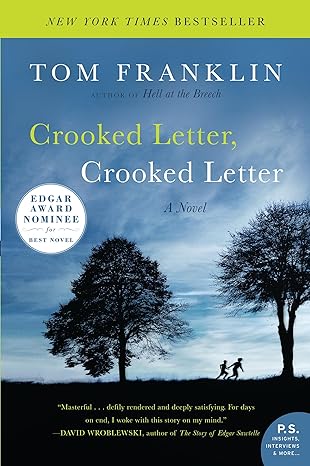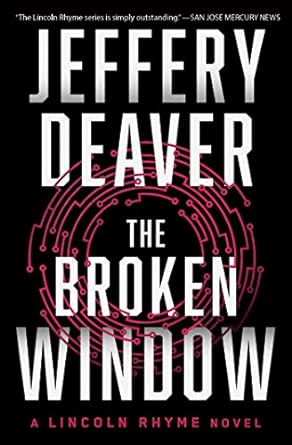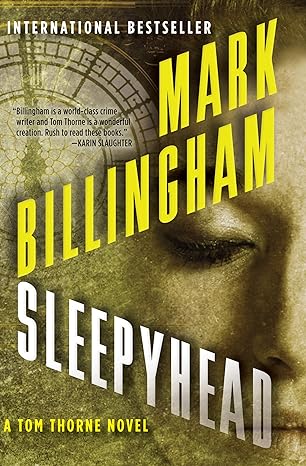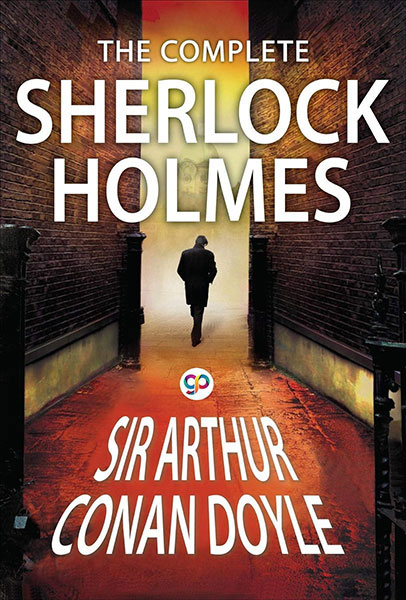
The Complete Sherlock Holmes
Housed in one superb volume, 'The Complete Sherlock Holmes' includes every Sherlock Holmes tale penned by the great Arthur Conan Doyle. With a linked table of contents, you can click on each and every chapter, making for easy navigation through this mammoth omnibus. Sherlock Holmes, the greatest fictional detective of the late 19th and early 20th centuries, was the creation of Scottish born author and physician Sir Arthur Conan Doyle. A brilliant London-based detective, Holmes is famous for his intellectual prowess, and is renowned for his skillful use of deductive reasoning and astute observation to solve difficult cases. He is arguably the most famous fictional detective ever created, and is one of the best known and most universally recognizable literary characters in any genre. Conan Doyle wrote four novels and fifty-six short stories that featured Holmes.
BEST DEALS
About the Author
Arthur Conan Doyle was born the third of ten siblings on 22 May 1859 in Edinburgh, Scotland. His Father, Charles Altamont Doyle, was born in England of Irish descent, and his mother, born Mary Foley, was Irish. They were married in 1855. At the age of nine Conan Doyle was sent to the Roman Catholic Jesuit preparatory school, Hodder Place, Stonyhurst. He then went on to Stonyhurst College, leaving in 1875. From 1876 to 1881 he studied medicine at the University of Edinburgh. This required that he provide periodic medical assistance in the towns of Aston (now a district of Birmingham) and Sheffield. While studying, Conan Doyle began writing short stories. His first published story appeared in 'Chambers's Edinburgh Journal' before he was 20. Following his graduation, he was employed as a ship's doctor on the SS Mayumba during a voyage to the West African coast. He completed his doctorate on the subject of tabes dorsalis in 1885. In 1885, Conan Doyle married Louisa Hawkins, known as 'Touie'. She suffered from tuberculosis and died on 4 July 1906. The following year he married Jean Elizabeth Leckie, whom he had first met and fallen in love with in 1897. Due to his sense of loyalty he had maintained a purely platonic relationship with Jean while his first wife was alive. Jean died in London on 27 June 1940. Conan Doyle fathered five children. Two with his first wife—Mary Louise (28 January 1889 – 12 June 1976), and Arthur Alleyne Kingsley, known as Kingsley (15 November 1892 – 28 October 1918). With his second wife he had three children—Denis Percy Stewart (17 March 1909 – 9 March 1955), second husband in 1936 of Georgian Princess Nina Mdivani (circa 1910 – 19 February 1987; former sister-in-law of Barbara Hutton); Adrian Malcolm (19 November 1910–3 June 1970) and Jean Lena Annette (21 December 1912–18 November 1997). Conan Doyle was found clutching his chest in the hall of Windlesham, his house in Crowborough, East Sussex, on 7 July 1930. He had died of a heart attack at age 71. His last words were directed toward his wife: "You are wonderful."
Read Sample
The Red-Headed League
I had called upon my friend, Mr. Sherlock Holmes, one day in the autumn of last year and found him in deep conversation with a very stout, florid-faced, elderly gentleman with fiery red hair. With an apology for my intrusion, I was about to withdraw when Holmes pulled me abruptly into the room and closed the door behind me.
“You could not possibly have come at a better time, my dear Watson,” he said cordially.
“I was afraid that you were engaged.”
“So I am. Very much so.”
“Then I can wait in the next room.”
“Not at all. This gentleman, Mr. Wilson, has been my partner and helper in many of my most successful cases, and I have no doubt that he will be of the utmost use to me in yours also.”
The stout gentleman half rose from his chair and gave a bob of greeting, with a quick little questioning glance from his small fat-encircled eyes.
“Try the settee,” said Holmes, relapsing into his armchair and putting his fingertips together, as was his custom when in judicial moods. “I know, my dear Watson, that you share my love of all that is bizarre and outside the conventions and humdrum routine of everyday life. You have shown your relish for it by the enthusiasm which has prompted you to chronicle, and, if you will excuse my saying so, somewhat to embellish so many of my own little adventures.”
“Your cases have indeed been of the greatest interest to me,” I observed.
“You will remember that I remarked the other day, just before we went into the very simple problem presented by Miss Mary Sutherland, that for strange effects and extraordinary combinations we must go to life itself, which is always far more daring than any effort of the imagination.”
“A proposition which I took the liberty of doubting.”
“You did, Doctor, but none the less you must come round to my view, for otherwise I shall keep on piling fact upon fact on you until your reason breaks down under them and acknowledges me to be right. Now, Mr. Jabez Wilson here has been good enough to call upon me this morning, and to begin a narrative which promises to be one of the most singular which I have listened to for some time. You have heard me remark that the strangest and most unique things are very often connected not with the larger but with the smaller crimes, and occasionally, indeed, where there is room for doubt whether any positive crime has been committed. As far as I have heard it is impossible for me to say whether the present case is an instance of crime or not, but the course of events is certainly among the most singular that I have ever listened to. Perhaps, Mr. Wilson, you would have the great kindness to recommence your narrative. I ask you not merely because my friend Dr. Watson has not heard the opening part but also because the peculiar nature of the story makes me anxious to have every possible detail from your lips. As a rule, when I have heard some slight indication of the course of events, I am able to guide myself by the thousands of other similar cases which occur to my memory. In the present instance I am forced to admit that the facts are, to the best of my belief, unique.”
The portly client puffed out his chest with an appearance of some little pride and pulled a dirty and wrinkled newspaper from the inside pocket of his greatcoat. As he glanced down the advertisement column, with his head thrust forward and the paper flattened out upon his knee, I took a good look at the man and endeavoured, after the fashion of my companion, to read the indications which might be presented by his dress or appearance.
I did not gain very much, however, by my inspection. Our visitor bore every mark of being an average commonplace British tradesman, obese, pompous, and slow. He wore rather baggy grey shepherd’s check trousers, a not over-clean black frock-coat, unbuttoned in the front, and a drab waistcoat with a heavy brassy Albert chain, and a square pierced bit of metal dangling down as an ornament. A frayed top-hat and a faded brown overcoat with a wrinkled velvet collar lay upon a chair beside him. Altogether, look as I would, there was nothing remarkable about the man save his blazing red head, and the expression of extreme chagrin and discontent upon his features.
Sherlock Holmes’ quick eye took in my occupation, and he shook his head with a smile as he noticed my questioning glances. “Beyond the obvious facts that he has at some time done manual labour, that he takes snuff, that he is a Freemason, that he has been in China, and that he has done a considerable amount of writing lately, I can deduce nothing else.”
Mr. Jabez Wilson started up in his chair, with his forefinger upon the paper, but his eyes upon my companion.
“How, in the name of good-fortune, did you know all that, Mr. Holmes?” he asked. “How did you know, for example, that I did manual labour. It’s as true as gospel, for I began as a ship’s carpenter.”
“Your hands, my dear sir. Your right hand is quite a size larger than your left. You have worked with it, and the muscles are more developed.”
“Well, the snuff, then, and the Freemasonry?”
“I won’t insult your intelligence by telling you how I read that, especially as, rather against the strict rules of your order, you use an arc-and-compass breastpin.”
“Ah, of course, I forgot that. But the writing?”
“What else can be indicated by that right cuff so very shiny for five inches, and the left one with the smooth patch near the elbow where you rest it upon the desk?”
“Well, but China?”
“The fish that you have tattooed immediately above your right wrist could only have been done in China. I have made a small study of tattoo marks and have even contributed to the literature of the subject. That trick of staining the fishes’ scales of a delicate pink is quite peculiar to China. When, in addition, I see a Chinese coin hanging from your watch-chain, the matter becomes even more simple.”
Mr. Jabez Wilson laughed heavily. “Well, I never!” said he. “I thought at first that you had done something clever, but I see that there was nothing in it, after all.”
“I begin to think, Watson,” said Holmes, “that I make a mistake in explaining. ‘Omne ignotum pro magnifico,’ you know, and my poor little reputation, such as it is, will suffer shipwreck if I am so candid. Can you not find the advertisement, Mr. Wilson?”
“Yes, I have got it now,” he answered with his thick red finger planted halfway down the column. “Here it is. This is what began it all. You just read it for yourself, sir.”
I took the paper from him and read as follows:
TO THE RED-HEADED LEAGUE:
On account of the bequest of the late Ezekiah Hopkins, of Lebanon, Pennsylvania, U.S.A., there is now another vacancy open which entitles a member of the League to a salary of £4 a week for purely nominal services. All red-headed men who are sound in body and mind and above the age of twenty-one years, are eligible. Apply in person on Monday, at eleven o’clock, to Duncan Ross, at the offices of the League, 7 Pope’s Court, Fleet Street.
“What on earth does this mean?” I ejaculated after I had twice read over the extraordinary announcement.
Holmes chuckled and wriggled in his chair, as was his habit when in high spirits. “It is a little off the beaten track, isn’t it?” said he. “And now, Mr. Wilson, off you go at scratch and tell us all about yourself, your household, and the effect which this advertisement had upon your fortunes. You will first make a note, Doctor, of the paper and the date.”
“It is The Morning Chronicle of April 27, 1890. Just two months ago.”
“Very good. Now, Mr. Wilson?”
“Well, it is just as I have been telling you, Mr. Sherlock Holmes,” said Jabez Wilson, mopping his forehead; “I have a small pawnbroker’s business at Coburg Square, near the City. It’s not a very large affair, and of late years it has not done more than just give me a living. I used to be able to keep two assistants, but now I only keep one; and I would have a job to pay him but that he is willing to come for half wages so as to learn the business.”
“What is the name of this obliging youth?” asked Sherlock Holmes.
“His name is Vincent Spaulding, and he’s not such a youth, either. It’s hard to say his age. I should not wish a smarter assistant, Mr. Holmes; and I know very well that he could better himself and earn twice what I am able to give him. But, after all, if he is satisfied, why should I put ideas in his head?”
“Why, indeed? You seem most fortunate in having an employee who comes under the full market price. It is not a common experience among employers in this age. I don’t know that your assistant is not as remarkable as your advertisement.”
“Oh, he has his faults, too,” said Mr. Wilson. “Never was such a fellow for photography. Snapping away with a camera when he ought to be improving his mind, and then diving down into the cellar like a rabbit into its hole to develop his pictures. That is his main fault, but on the whole he’s a good worker. There’s no vice in him.”
“He is still with you, I presume?”
“Yes, sir. He and a girl of fourteen, who does a bit of simple cooking and keeps the place clean—that’s all I have in the house, for I am a widower and never had any family. We live very quietly, sir, the three of us; and we keep a roof over our heads and pay our debts, if we do nothing more.
“The first thing that put us out was that advertisement. Spaulding, he came down into the office just this day eight weeks, with this very paper in his hand, and he says:
“‘I wish to the Lord, Mr. Wilson, that I was a red-headed man.’
“‘Why that?’ I asks.
“‘Why,’ says he, ‘here’s another vacancy on the League of the Red-headed Men. It’s worth quite a little fortune to any man who gets it, and I understand that there are more vacancies than there are men, so that the trustees are at their wits’ end what to do with the money. If my hair would only change colour, here’s a nice little crib all ready for me to step into.’
“‘Why, what is it, then?’ I asked. You see, Mr. Holmes, I am a very stay-at-home man, and as my business came to me instead of my having to go to it, I was often weeks on end without putting my foot over the door-mat. In that way I didn’t know much of what was going on outside, and I was always glad of a bit of news.
“‘Have you never heard of the League of the Red-headed Men?’ he asked with his eyes open.
“‘Never.’
“‘Why, I wonder at that, for you are eligible yourself for one of the vacancies.’
“‘And what are they worth?’ I asked.
“‘Oh, merely a couple of hundred a year, but the work is slight, and it need not interfere very much with one’s other occupations.’
“Well, you can easily think that that made me prick up my ears, for the business has not been over-good for some years, and an extra couple of hundred would have been very handy.
“‘Tell me all about it,’ said I.
“‘Well,’ said he, showing me the advertisement, ‘you can see for yourself that the League has a vacancy, and there is the address where you should apply for particulars. As far as I can make out, the League was founded by an American millionaire, Ezekiah Hopkins, who was very peculiar in his ways. He was himself red-headed, and he had a great sympathy for all red-headed men; so when he died it was found that he had left his enormous fortune in the hands of trustees, with instructions to apply the interest to the providing of easy berths to men whose hair is of that colour. From all I hear it is splendid pay and very little to do.’
“‘But,’ said I, ‘there would be millions of red-headed men who would apply.’
“‘Not so many as you might think,’ he answered. ‘You see it is really confined to Londoners, and to grown men. This American had started from London when he was young, and he wanted to do the old town a good turn. Then, again, I have heard it is no use your applying if your hair is light red, or dark red, or anything but real bright, blazing, fiery red. Now, if you cared to apply, Mr. Wilson, you would just walk in; but perhaps it would hardly be worth your while to put yourself out of the way for the sake of a few hundred pounds.’
“Now, it is a fact, gentlemen, as you may see for yourselves, that my hair is of a very full and rich tint, so that it seemed to me that if there was to be any competition in the matter I stood as good a chance as any man that I had ever met. Vincent Spaulding seemed to know so much about it that I thought he might prove useful, so I just ordered him to put up the shutters for the day and to come right away with me. He was very willing to have a holiday, so we shut the business up and started off for the address that was given us in the advertisement.
“I never hope to see such a sight as that again, Mr. Holmes. From north, south, east, and west every man who had a shade of red in his hair had tramped into the city to answer the advertisement. Fleet Street was choked with red-headed folk, and Pope’s Court looked like a coster’s orange barrow. I should not have thought there were so many in the whole country as were brought together by that single advertisement. Every shade of colour they were—straw, lemon, orange, brick, Irish-setter, liver, clay; but, as Spaulding said, there were not many who had the real vivid flame-coloured tint. When I saw how many were waiting, I would have given it up in despair; but Spaulding would not hear of it. How he did it I could not imagine, but he pushed and pulled and butted until he got me through the crowd, and right up to the steps which led to the office. There was a double stream upon the stair, some going up in hope, and some coming back dejected; but we wedged in as well as we could and soon found ourselves in the office.”
“Your experience has been a most entertaining one,” remarked Holmes as his client paused and refreshed his memory with a huge pinch of snuff. “Pray continue your very interesting statement.”
“There was nothing in the office but a couple of wooden chairs and a deal table, behind which sat a small man with a head that was even redder than mine. He said a few words to each candidate as he came up, and then he always managed to find some fault in them which would disqualify them. Getting a vacancy did not seem to be such a very easy matter, after all. However, when our turn came the little man was much more favourable to me than to any of the others, and he closed the door as we entered, so that he might have a private word with us.
“‘This is Mr. Jabez Wilson,’ said my assistant, ‘and he is willing to fill a vacancy in the League.’
“‘And he is admirably suited for it,’ the other answered. ‘He has every requirement. I cannot recall when I have seen anything so fine.’ He took a step backward, cocked his head on one side, and gazed at my hair until I felt quite bashful. Then suddenly he plunged forward, wrung my hand, and congratulated me warmly on my success.
“‘It would be injustice to hesitate,’ said he. ‘You will, however, I am sure, excuse me for taking an obvious precaution.’ With that he seized my hair in both his hands, and tugged until I yelled with the pain. ‘There is water in your eyes,’ said he as he released me. ‘I perceive that all is as it should be. But we have to be careful, for we have twice been deceived by wigs and once by paint. I could tell you tales of cobbler’s wax which would disgust you with human nature.’ He stepped over to the window and shouted through it at the top of his voice that the vacancy was filled. A groan of disappointment came up from below, and the folk all trooped away in different directions until there was not a red-head to be seen except my own and that of the manager.
“‘My name,’ said he, ‘is Mr. Duncan Ross, and I am myself one of the pensioners upon the fund left by our noble benefactor. Are you a married man, Mr. Wilson? Have you a family?’
“I answered that I had not.
“His face fell immediately.
“‘Dear me!’ he said gravely, ‘that is very serious indeed! I am sorry to hear you say that. The fund was, of course, for the propagation and spread of the red-heads as well as for their maintenance. It is exceedingly unfortunate that you should be a bachelor.’
“My face lengthened at this, Mr. Holmes, for I thought that I was not to have the vacancy after all; but after thinking it over for a few minutes he said that it would be all right.
“‘In the case of another,’ said he, ‘the objection might be fatal, but we must stretch a point in favour of a man with such a head of hair as yours. When shall you be able to enter upon your new duties?’
“‘Well, it is a little awkward, for I have a business already,’ said I.
“‘Oh, never mind about that, Mr. Wilson!’ said Vincent Spaulding. ‘I should be able to look after that for you.’
“‘What would be the hours?’ I asked.
“‘Ten to two.’
“Now a pawnbroker’s business is mostly done of an evening, Mr. Holmes, especially Thursday and Friday evening, which is just before pay-day; so it would suit me very well to earn a little in the mornings. Besides, I knew that my assistant was a good man, and that he would see to anything that turned up.
“‘That would suit me very well,’ said I. ‘And the pay?’
“‘Is £4 a week.’
“‘And the work?’
“‘Is purely nominal.’
“‘What do you call purely nominal?’
“‘Well, you have to be in the office, or at least in the building, the whole time. If you leave, you forfeit your whole position forever. The will is very clear upon that point. You don’t comply with the conditions if you budge from the office during that time.’
“‘It’s only four hours a day, and I should not think of leaving,’ said I.
“‘No excuse will avail,’ said Mr. Duncan Ross; ‘neither sickness nor business nor anything else. There you must stay, or you lose your billet.’
“‘And the work?’
“‘Is to copy out the “Encyclopædia Britannica.” There is the first volume of it in that press. You must find your own ink, pens, and blotting-paper, but we provide this table and chair. Will you be ready tomorrow?’
“‘Certainly,’ I answered.
“‘Then, good-bye, Mr. Jabez Wilson, and let me congratulate you once more on the important position which you have been fortunate enough to gain.’ He bowed me out of the room and I went home with my assistant, hardly knowing what to say or do, I was so pleased at my own good fortune.
“Well, I thought over the matter all day, and by evening I was in low spirits again; for I had quite persuaded myself that the whole affair must be some great hoax or fraud, though what its object might be I could not imagine. It seemed altogether past belief that anyone could make such a will, or that they would pay such a sum for doing anything so simple as copying out the ‘Encyclopædia Britannica.’ Vincent Spaulding did what he could to cheer me up, but by bedtime I had reasoned myself out of the whole thing. However, in the morning I determined to have a look at it anyhow, so I bought a penny bottle of ink, and with a quill-pen, and seven sheets of foolscap paper, I started off for Pope’s Court.
“Well, to my surprise and delight, everything was as right as possible. The table was set out ready for me, and Mr. Duncan Ross was there to see that I got fairly to work. He started me off upon the letter A, and then he left me; but he would drop in from time to time to see that all was right with me. At two o’clock he bade me good-day, complimented me upon the amount that I had written, and locked the door of the office after me.
“This went on day after day, Mr. Holmes, and on Saturday the manager came in and planked down four golden sovereigns for my week’s work. It was the same next week, and the same the week after. Every morning I was there at ten, and every afternoon I left at two. By degrees Mr. Duncan Ross took to coming in only once of a morning, and then, after a time, he did not come in at all. Still, of course, I never dared to leave the room for an instant, for I was not sure when he might come, and the billet was such a good one, and suited me so well, that I would not risk the loss of it.
“Eight weeks passed away like this, and I had written about Abbots and Archery and Armour and Architecture and Attica, and hoped with diligence that I might get on to the B’s before very long. It cost me something in foolscap, and I had pretty nearly filled a shelf with my writings. And then suddenly the whole business came to an end.”
“To an end?”
“Yes, sir. And no later than this morning. I went to my work as usual at ten o’clock, but the door was shut and locked, with a little square of cardboard hammered on to the middle of the panel with a tack. Here it is, and you can read for yourself.”
He held up a piece of white cardboard about the size of a sheet of note-paper. It read in this fashion:
THE RED-HEADED LEAGUE
IS
DISSOLVED
OCTOBER 9, 1890.
Sherlock Holmes and I surveyed this curt announcement and the rueful face behind it, until the comical side of the affair so completely overtopped every other consideration that we both burst out into a roar of laughter.
“I cannot see that there is anything very funny,” cried our client, flushing up to the roots of his flaming head. “If you can do nothing better than laugh at me, I can go elsewhere.”
“No, no,” cried Holmes, shoving him back into the chair from which he had half risen. “I really wouldn’t miss your case for the world. It is most refreshingly unusual. But there is, if you will excuse my saying so, something just a little funny about it. Pray what steps did you take when you found the card upon the door?”
“I was staggered, sir. I did not know what to do. Then I called at the offices round, but none of them seemed to know anything about it. Finally, I went to the landlord, who is an accountant living on the ground-floor, and I asked him if he could tell me what had become of the Red-headed League. He said that he had never heard of any such body. Then I asked him who Mr. Duncan Ross was. He answered that the name was new to him.
“‘Well,’ said I, ‘the gentleman at No. 4.’
“‘What, the red-headed man?’
“‘Yes.’
“‘Oh,’ said he, ‘his name was William Morris. He was a solicitor and was using my room as a temporary convenience until his new premises were ready. He moved out yesterday.’
“‘Where could I find him?’
“‘Oh, at his new offices. He did tell me the address. Yes, 17 King Edward Street, near St. Paul’s.’
“I started off, Mr. Holmes, but when I got to that address it was a manufactory of artificial knee-caps, and no one in it had ever heard of either Mr. William Morris or Mr. Duncan Ross.”
“And what did you do then?” asked Holmes.
“I went home to Saxe-Coburg Square, and I took the advice of my assistant. But he could not help me in any way. He could only say that if I waited I should hear by post. But that was not quite good enough, Mr. Holmes. I did not wish to lose such a place without a struggle, so, as I had heard that you were good enough to give advice to poor folk who were in need of it, I came right away to you.”
“And you did very wisely,” said Holmes. “Your case is an exceedingly remarkable one, and I shall be happy to look into it. From what you have told me I think that it is possible that graver issues hang from it than might at first sight appear.”
“Grave enough!” said Mr. Jabez Wilson. “Why, I have lost four pound a week.”
“As far as you are personally concerned,” remarked Holmes, “I do not see that you have any grievance against this extraordinary league. On the contrary, you are, as I understand, richer by some £30, to say nothing of the minute knowledge which you have gained on every subject which comes under the letter A. You have lost nothing by them.”
“No, sir. But I want to find out about them, and who they are, and what their object was in playing this prank—if it was a prank—upon me. It was a pretty expensive joke for them, for it cost them two and thirty pounds.”
“We shall endeavour to clear up these points for you. And, first, one or two questions, Mr. Wilson. This assistant of yours who first called your attention to the advertisement—how long had he been with you?”
“About a month then.”
“How did he come?”
“In answer to an advertisement.”
“Was he the only applicant?”
“No, I had a dozen.”
“Why did you pick him?”
“Because he was handy and would come cheap.”
“At half-wages, in fact.”
“Yes.”
“What is he like, this Vincent Spaulding?”
“Small, stout-built, very quick in his ways, no hair on his face, though he’s not short of thirty. Has a white splash of acid upon his forehead.”
Holmes sat up in his chair in considerable excitement. “I thought as much,” said he. “Have you ever observed that his ears are pierced for earrings?”
“Yes, sir. He told me that a gipsy had done it for him when he was a lad.”
“Hum!” said Holmes, sinking back in deep thought. “He is still with you?”
“Oh, yes, sir; I have only just left him.”
“And has your business been attended to in your absence?”
“Nothing to complain of, sir. There’s never very much to do of a morning.”
“That will do, Mr. Wilson. I shall be happy to give you an opinion upon the subject in the course of a day or two. Today is Saturday, and I hope that by Monday we may come to a conclusion.”
“Well, Watson,” said Holmes when our visitor had left us, “what do you make of it all?”
“I make nothing of it,” I answered frankly. “It is a most mysterious business.”
“As a rule,” said Holmes, “the more bizarre a thing is the less mysterious it proves to be. It is your commonplace, featureless crimes which are really puzzling, just as a commonplace face is the most difficult to identify. But I must be prompt over this matter.”
“What are you going to do, then?” I asked.
“To smoke,” he answered. “It is quite a three pipe problem, and I beg that you won’t speak to me for fifty minutes.” He curled himself up in his chair, with his thin knees drawn up to his hawk-like nose, and there he sat with his eyes closed and his black clay pipe thrusting out like the bill of some strange bird. I had come to the conclusion that he had dropped asleep, and indeed was nodding myself, when he suddenly sprang out of his chair with the gesture of a man who has made up his mind and put his pipe down upon the mantelpiece.
“Sarasate plays at the St. James’s Hall this afternoon,” he remarked. “What do you think, Watson? Could your patients spare you for a few hours?”
“I have nothing to do today. My practice is never very absorbing.”



